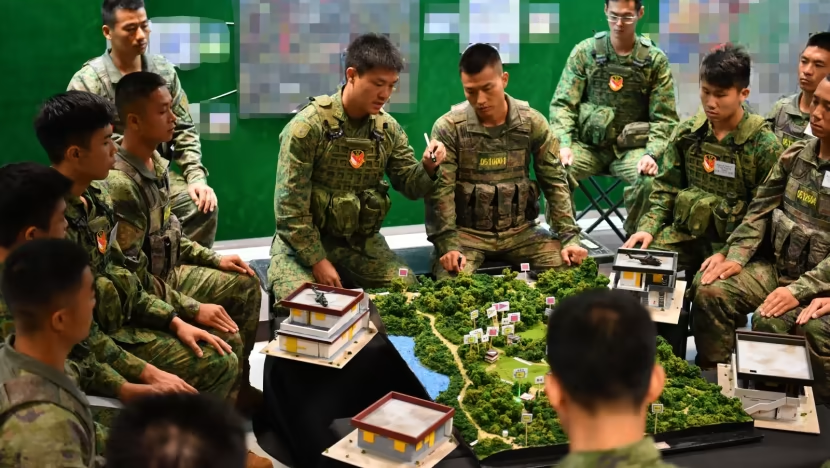Global Trade Wars: Impacts and Strategies for Emerging Markets
Global trade wars, characterized by escalating tariffs and retaliatory measures between major economies, have profound implications for the international economic landscape. Emerging markets, often reliant on trade for growth and development, are particularly vulnerable to the disruptions caused by these conflicts. This article examines the impacts of global trade wars on emerging markets and explores strategies these nations can adopt to navigate the challenges and seize opportunities in this volatile environment.
#### The Landscape of Global Trade Wars
Global trade wars typically involve major economic powers, such as the United States and China, imposing tariffs on each other’s goods in an attempt to protect domestic industries and reduce trade deficits. These actions trigger a series of retaliatory measures, leading to a cycle of increasing protectionism. While the primary combatants in these trade wars are often large, developed economies, the repercussions ripple through the global economy, affecting countries worldwide.
Emerging markets, which are economies in the process of rapid growth and industrialization, are particularly susceptible to these disruptions. Many of these countries are heavily dependent on exports to fuel their economic growth. Trade wars can lead to reduced demand for their exports, increased costs of imports, and overall economic instability.
#### Impacts on Emerging Markets
1. **Export Declines and Economic Slowdown**: Emerging markets that rely on exports to major economies can experience significant economic slowdowns due to reduced demand. For instance, countries in Southeast Asia that supply electronic components to China may see diminished orders as Chinese manufacturers face reduced demand from the U.S. market.
2. **Supply Chain Disruptions**: Global supply chains are intricately linked, and trade wars can cause significant disruptions. Emerging markets integrated into these supply chains may face challenges in sourcing materials or selling finished goods. This can lead to increased production costs and delays.
3. **Currency Volatility**: Trade tensions often lead to currency volatility as investors react to uncertainties. Emerging markets may experience destabilizing capital flows and exchange rate fluctuations, complicating economic management and planning.
4. **Inflationary Pressures**: Tariffs increase the cost of imported goods, which can lead to inflation. For emerging markets reliant on imports for essential goods and raw materials, this can squeeze consumers and businesses, leading to higher costs of living and reduced economic activity.
5. **Investment Uncertainty**: Trade wars create an uncertain investment climate. Foreign investors may delay or cancel investments in emerging markets due to concerns about market access and stability. This can hamper growth and development prospects.
#### Strategies for Navigating Trade Wars
While the challenges posed by global trade wars are significant, emerging markets can adopt several strategies to mitigate their impacts and position themselves for future growth.
1. **Diversifying Trade Partnerships**: Relying heavily on a single market or a few markets makes countries vulnerable to trade disruptions. Diversifying trade partnerships by seeking new markets can help reduce this risk. Regional trade agreements and South-South trade initiatives (trade between developing countries) can play a crucial role in this diversification.
2. **Strengthening Regional Cooperation**: Regional cooperation can help mitigate the impacts of global trade wars. By fostering closer economic ties with neighboring countries, emerging markets can create more resilient regional markets. Initiatives like the African Continental Free Trade Area (AfCFTA) aim to boost intra-African trade and reduce dependency on external markets.
3. **Investing in Value Addition and Industrialization**: Moving up the value chain by investing in industrialization and value-added production can help emerging markets reduce their vulnerability to trade shocks. By processing raw materials locally and producing finished goods, these countries can capture more value domestically and develop more resilient economies.
4. **Enhancing Trade Facilitation and Infrastructure**: Improving trade facilitation measures, such as reducing bureaucratic red tape and enhancing customs efficiency, can make exports more competitive. Investing in infrastructure, such as ports, roads, and digital networks, can also improve trade efficiency and attract investment.
5. **Building Economic Resilience**: Diversifying the economy beyond trade by developing sectors such as services, agriculture, and technology can reduce dependency on volatile international markets. Building strong domestic markets and fostering innovation can create more balanced and resilient economies.
6. **Engaging in Multilateral Negotiations**: Active participation in multilateral trade organizations, such as the World Trade Organization (WTO), can help emerging markets advocate for fairer trade rules and dispute resolution mechanisms. Collective bargaining through regional or global alliances can amplify their voices in international negotiations.
7. **Promoting Inclusive Growth**: Ensuring that the benefits of trade are widely shared can enhance social and economic stability. Policies that promote inclusive growth, such as investing in education, healthcare, and social safety nets, can help build a more resilient and cohesive society capable of weathering economic shocks.
#### Case Study: ASEAN and Regional Resilience
The Association of Southeast Asian Nations (ASEAN) provides a compelling example of how regional cooperation can enhance resilience against global trade wars. ASEAN member states have pursued policies to strengthen intra-regional trade and investment, reducing their dependency on external markets.
The ASEAN Economic Community (AEC) aims to create a single market and production base, allowing for the free flow of goods, services, investment, and skilled labor. By fostering closer economic integration, ASEAN countries are better positioned to mitigate the impacts of global trade tensions and leverage regional strengths for collective growth.
#### Conclusion
Global trade wars pose significant challenges for emerging markets, disrupting trade flows, increasing economic uncertainty, and threatening growth prospects. However, by adopting strategic measures such as diversifying trade partnerships, enhancing regional cooperation, and investing in economic resilience, these countries can navigate the complex landscape of global trade tensions.
The future of global trade is likely to remain volatile, but with proactive and adaptive strategies, emerging markets can not only mitigate the risks but also seize new opportunities. Building resilient, diversified, and inclusive economies will be key to thriving in an era of trade wars and global economic uncertainty. By focusing on long-term development goals and fostering regional and international cooperation, emerging markets can chart a path towards sustainable growth and prosperity.









